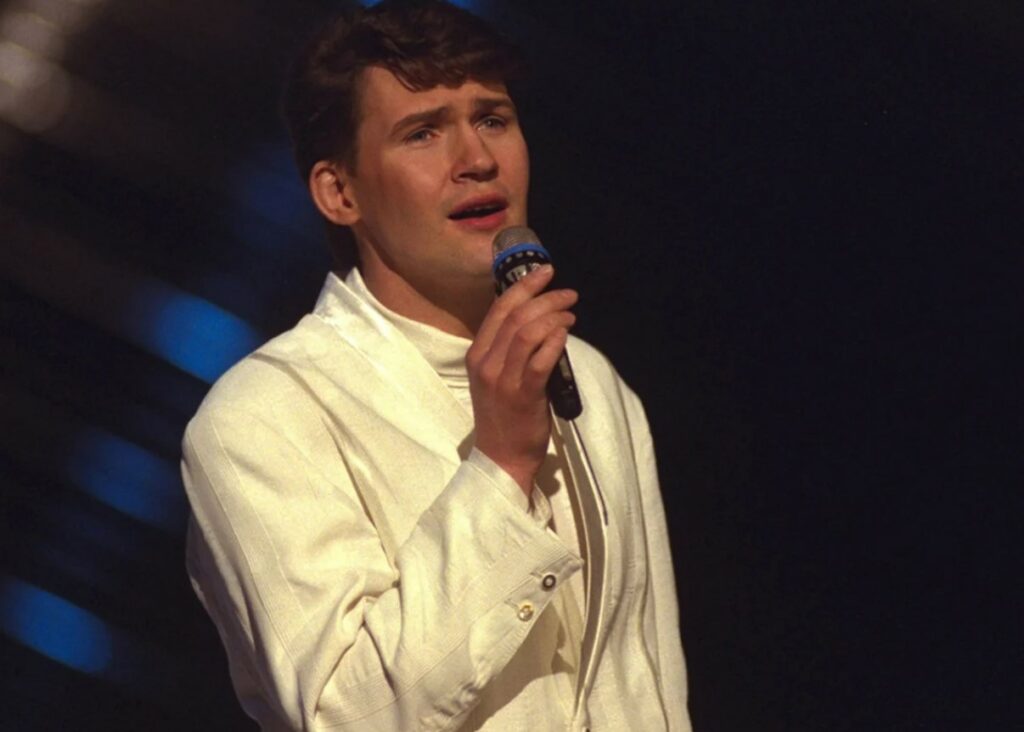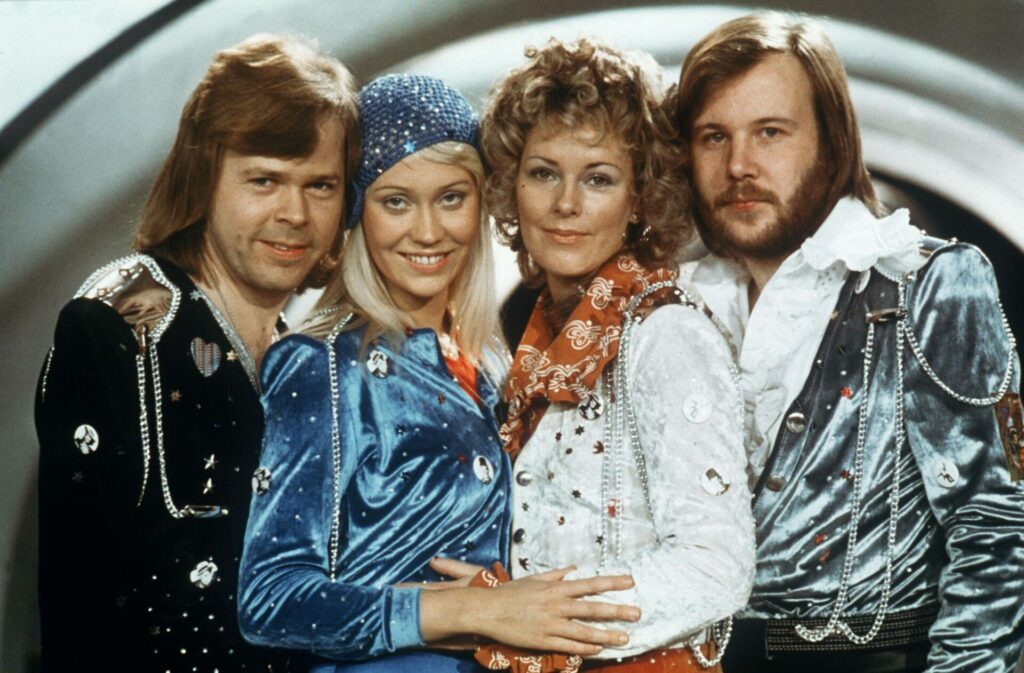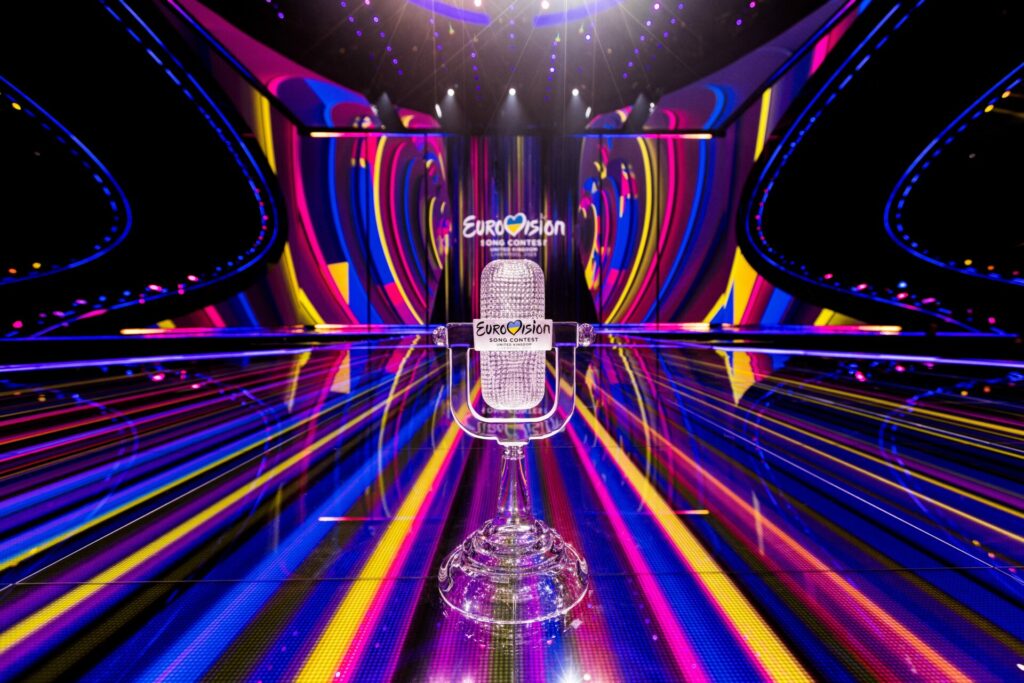As Belgium has secured its place among the 26 candidates vying for eternal Eurovision glory in the song contest's much-anticipated final on Saturday night, here is everything you need to know to enjoy the show to the full this weekend.
The Eurovision Song Contest is one of the longest-running recurring television broadcasts in the world (having started in 1956) and is the world's biggest music show to-date, bringing fun and absurdity and even making musical history year upon year.
It has also gained popularity for its kitsch appeal, its musical span of ethnic and international styles, as well as emergence as part of LGBTQ culture, resulting in a very active fanbase and a large influence on popular culture.
But what makes the Eurovision Song Contest so special? Here are douze points to enlighten you.
1 - Australia is in Europe now
OK, maybe not quite, but the Eurovision-friendly country has been allowed to participate in the Eurovision Song Contest for eight years now. It may seem a little odd, but Australia's entry was permitted as a goodwill gesture in 2015, for the competition's 60th anniversary.
The following year, the country even came second, so they may be crowned winners before long (in which case, Australia would have to nominate a European country to host on its behalf).
2 - The competition has only been cancelled once
Eurovision Song Contest 2020 was cancelled due to the Covid-19 pandemic for the first and only time in 64 (now 67) years. The 65th edition of the Eurovision Song Contest would have taken place in Rotterdam, the Netherlands, following the country's victory at the 2019 contest with the song 'Arcade' by Duncan Laurence.
In its place, the European Broadcasting Union (EBU) and its Dutch members NPO, NOS and AVROTROS organised a replacement show entitled 'Eurovision: Europe Shine a Light' to showcase the selected entries on the day of the planned final.
Your 26 #Eurovision2023 Grand Final Contestants! 🇦🇱🇦🇲🇦🇺🇦🇹🇧🇪🇭🇷🇨🇾🇨🇿🇪🇪🇫🇮🇫🇷🇩🇪🇮🇱🇮🇹🇱🇹🇲🇩🇳🇴🇵🇱🇵🇹🇷🇸🇸🇮🇪🇸🇸🇪🇨🇭🇬🇧🇺🇦
— Eurovision Song Contest (@Eurovision) May 11, 2023
3 - Too many countries want to participate
Initially, only seven countries took part in the show. But more countries have become involved as it has become more popular and the format has changed substantially since 1956.
As over 40 countries have been competing since 2004, the show has two semi-finals to decide on the 26 acts for the grand finale. Despite the fact that not all 43 countries make it through to the final, they can still all participate in the vote.
Related News
- Belgium qualifies in style for Eurovision Song Contest final on Saturday
- This is Brussels calling: Looking at Belgium's chances of Eurovision glory
4 - Singing in your own language
For several years (between 1966 and 1972, as well as from 1978 to 1998), the rules stated that each country had to perform in one of their national languages (single words or phrases in other languages were still allowed).
While that rule has been abandoned for 15 years and countries are free to choose the language in which they sing, several nations – such as France, for example – have a reputation for sticking to their mother tongue while many others often opt for English lyrics, so as to be understood by as many viewers as possible.
In fact, three Eurovision songs have actually been in made-up languages, two of which came from Belgium: Sanomi (2003) and O Julissi (2008). The third was sent in by the Netherlands: Amambanda (2006).
5 - The luck of the Irish
Ireland holds the record for most victories in the Eurovision Song Contest, as it has won seven times (in 1970, 1980, 1987, 1992, 1993, 1994 and 1996). On top of that, they also have the rare success of winning three consecutive years in a row.
Johnny Logan was fortunate enough to claim three of the seven wins. His first was in 1980 with the song 'What's Another Year', and won for a second time in 1987 with 'Hold Me Now', which he wrote himself.
While Logan did not take part himself, his third win came in 1992, when he composed Linda Martin's winning entry 'Why Me?'

Johnny Logan. Credit: Youtube
6 - Belgium claims the youngest winner (and lied about her age)
In 1986, Belgium won the Eurovision Song Contest for the first and (so far) only time with Sandra Kim's song 'J'aime La Vie'. At the time, her victory garnered some controversy as Kim had lied about her age, with the lyrics to her song claiming that she was 15: "Moi j'ai quinze ans et je te dis j'aime la vie."
Another of the youngest ever artists to perform also came from Belgium, 11-year-old Nathalie Pâque, but represented France in 1989 with the song 'J'ai Volé La Vie'.
Again, the girl's age was controversial and led to a change in the rules on the age of artists taking part in Eurovision: contestants must now be at least 16 years old on the night of the final.
7 - The Big Five
While all other countries have to qualify for the big final, an exception is made for five countries: France, Germany, Spain, Italy and the United Kingdom, giving them an automatic right to compete in the contest.
Initially the 'Big Four' (without Italy until 2011), these countries are the highest-paying EBU members, meaning that they make a significant financial contribution to the contest every year. While this practice was introduced to ensure funding from the contest's biggest financial backers, the 'Big Five' now automatically qualify for the final along with the host country.
8 - Nil points
Since the start of the competition, a total of 37 songs have not received any points at all from the audience. This happened four times for both Norway and Austria, making them dubious record holders.
Strikingly – and perhaps demonstrating bad taste – in 1974 the United Kingdom was the only country to give zero points to ABBA when the group won with 'Waterloo', catapulting them to worldwide fame.

Credit: Belga
9 - A worldwide hit
The Eurovision Song Contest has aired in countries across all continents and has been available online via the official Eurovision website since 2001.
Due to the competition's success, the United States held a similar contest for the first time last year (the American Song Contest), featuring songs representing US states and territories – but it did not garner the worldwide attention its European counterpart does. Canada and Latin America are also in the process of developing similar shows.
Additionally, a Eurovision film was made a few years ago ('Eurovision Song Contest: The Story of Fire Saga'), starring an array of celebrities such as Will Ferrell, Rachel McAdams and Pierce Brosnan.
10 - Too poor to host?
Whilst one of the winning country's rewards is the honour of hosting (and automatically qualifying) the following year, it is often such an expensive affair that several nations opt out for financial reasons.
It has even been suggested that countries sometimes intentionally send contestants that will not do well because the cost of hosting would be too great for the organising broadcaster.
The countries that have previously opted out include the Netherlands, France, Monaco, and Luxembourg. The UK has offered to host on other countries' behalf four times, and is doing so again this year, as Ukraine (2022's winner) is unable to host due to Russia's ongoing invasion.
11 - Sharing victories
In 1969, the contest had four winners: the UK, Spain, the Netherlands and France all had the same number of points. It was the first time in the history of the contest that a tie had occurred, and as there was no tiebreaker rule in place at the time, all four countries were declared joint winners.
If there is a tie today, the country which receives points from the highest number of other countries will win.
12 - Let's (not) get political
Despite the light-hearted atmosphere of the event, there are often political undercurrents. This becomes particularly evident during voting, because certain countries vote for the acts of their neighbouring countries and shun nations they take issue with, rather than basing their vote on musical merit.
This political voting system (and its subsequent criticism) was at its highest in the mid-2000s, resulting in a number of calls for countries to boycott the contest over reported voting bias, particularly following the 2007 contest where Eastern European countries occupied the top 15 places in the final and dominated the qualifying spaces.
Adding national juries with professional judgement to the public vote has combatted the phenomenon to an extent. Still, there's little chance Belgium and its neighbours won't be backing each other any time soon.

